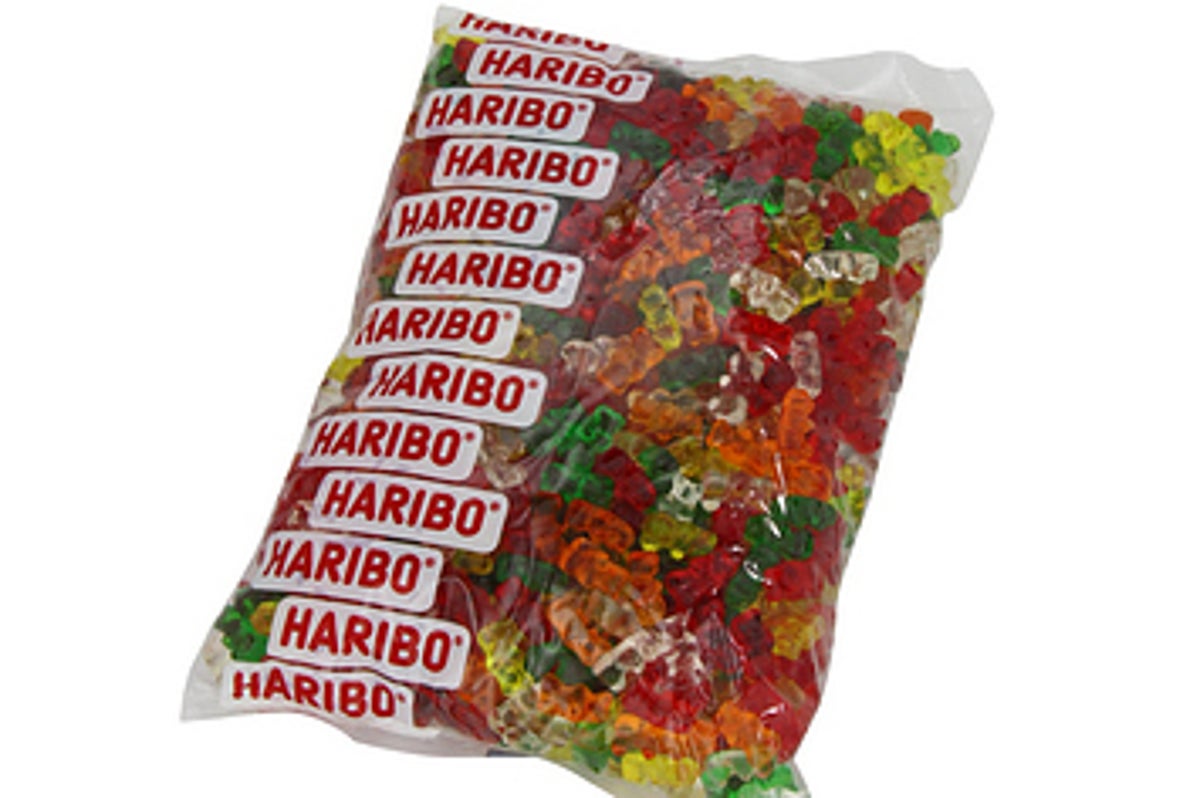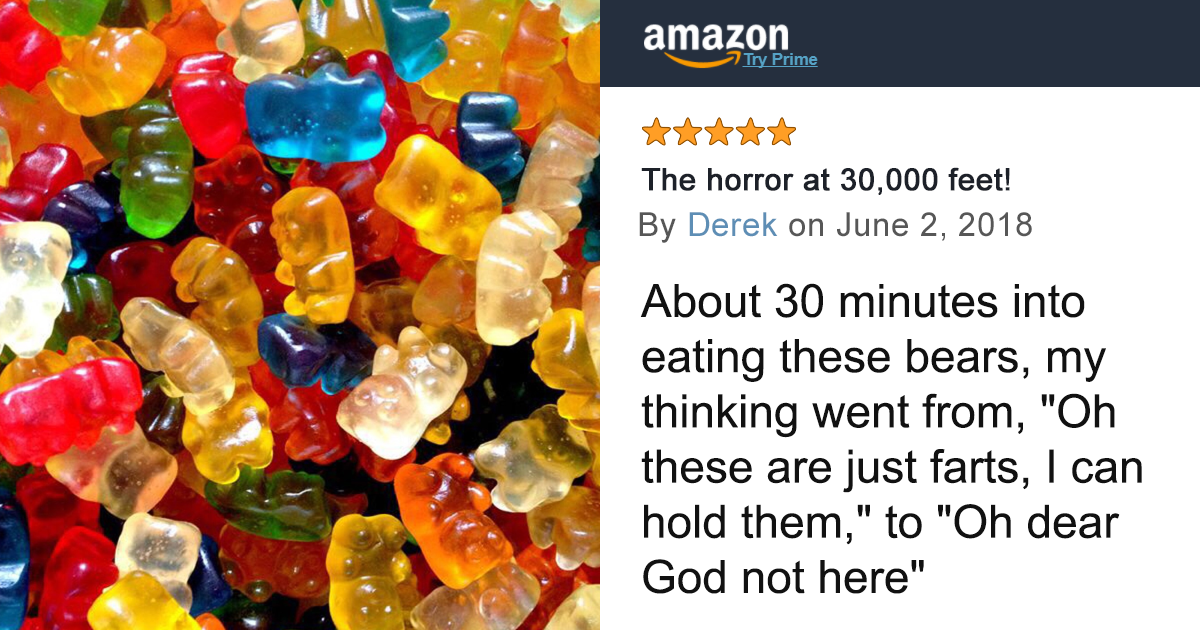In an era where health and dietary considerations are at the forefront of consumer choices, Haribo Sugar-Free Gummy Bears have gained notoriety for generating both laughter and chaos. With thousands of reviews flooding Amazon that range from hilarious to horrifying, the question arises: what makes these gummy bears so divisive? A staggering 90% of reviews for these sweet treats include personal stories of digestive distress, with many claiming the aftermath resembles a scene from a horror film. How did these gummy bears become a cultural phenomenon, and what does it say about our understanding of sugar substitutes?

amazon reviews for haribo sugar free gummy bears
The Social Media Surge and Public Response
The extraordinary attention that Haribo Sugar-Free Gummy Bears receive on platforms like Reddit, TikTok, and Twitter has propelled their notoriety beyond mere product reviews. Social media users often share personal anecdotes related to the gummies, transforming simple consumer feedback into viral content. One popular review mentions, “I had never felt such simultaneous relief and anguish in my life,” echoing sentiments found in countless other reviews.

amazon reviews for haribo sugar free gummy bears
In a world where social media can amplify a single review into a trending topic, Haribo has found itself in the eye of the storm. Not only are users warning others about the side effects, such as cramping and gas, but they also share graphic and comedic portrayals of their experiences, further ingraining the product in online culture. This phenomenon demonstrates how social media shapes public perception and can create a product narrative that eclipses the original marketing intent.
The Thin Line of Humor and Reality
The structure of the reviews showcases a clear divide between enjoyment and regret. Many customers rave about the rich fruit flavors and addictive texture, only to follow up with cautionary tales of their resultant trip to the bathroom. Review after review hilariously laments the experience while still praising the taste. This duality invites consumers to find humor in their pain while discussing a very real aspect of nutrition—the consequences of consuming sugar substitutes like maltitol.
Expert Analyses: Weight Loss and Sugar Substitutes
From a nutritional standpoint, sugar-free alternatives like maltitol are popular among those seeking to reduce sugar intake and manage weight. However, experts warn that overconsumption can lead to discomfort and digestive issues. Registered dietitian Jane Smith elaborates, “While sugar-free gummy bears can fit into a weight-loss plan, moderation is crucial. The intestinal distress reported in many reviews hinges on maladaptive consumption of sugar substitutes.” The humor surrounding the topic might distract from the essential conversations about dietary habits and the challenges of managing sugar cravings.
The Mental and Emotional Benefits of Indulgence
Beneath the laughter and the chaos, there lies a deeper emotional connection with these gummy bears. Many reviewers express a sense of relief and nostalgia when consuming Haribo products, serving as comfort food. Clinical psychologist Dr. Amy Jones emphasizes, “Food can evoke feelings of joy, especially during times of stress or dietary restrictions. However, it’s essential for individuals to recognize when a nutritious alternative like sugar-free products becomes detrimental to emotional well-being.”\
The simultaneous joy of indulging in a sweet treat, even with its drawbacks, contributes to a cultural narrative that fosters vulnerability and openness towards struggles with dietary choices. Consequently, Haribo Sugar-Free Gummy Bears become not only a product of interest but a shared journey that fosters connections among consumers.
Linking to Broader Health Trends
The fascination with Haribo Sugar-Free Gummy Bears can also be linked to a broader health trend in 2024 focused on sugar reduction and healthier snacking options. As more consumers become health-conscious, alternatives to traditional sweets gain momentum in the marketplace. However, the Haribo experience underscores an essential conversation: not all sugar alternatives yield the benefits promised and can pose challenges of their own.
https://www.youtube.com/watch?v=
Frequently Asked Questions (FAQ)
Why did Haribo discontinue sugar-free gummy bears?
Haribo has faced backlash for the digestive issues linked to their sugar-free gummy bears, leading to a significant number of negative reviews. While they have not formally discontinued the product, they have included warnings about possible side effects, allowing consumers to make informed choices.
What sweetener is used in Haribo sugar-free gummy bears?
The primary sweetener in Haribo Sugar-Free Gummy Bears is maltitol, a sugar alcohol that provides sweetness without calories. However, it can also cause gastrointestinal distress when consumed in large quantities.
Are Haribo gummy bears good?
Many consumers rave about the taste of Haribo gummy bears, both sugar and sugar-free versions. However, individual experiences can vary significantly, particularly when it comes to digestive effects associated with the sugar-free variant.
How much sugar is in a bag of Haribo Gummy Bears?
A standard bag of Haribo gummy bears typically contains around 18 grams of sugar per serving (about 17 pieces). It is essential to check the nutritional information for specific product details.
Conclusion: A Lesson in Moderation and Community
Ultimately, the saga of Haribo Sugar-Free Gummy Bears serves as a quirky reflection of our collective attitudes towards health, indulgence, and community engagement. As social media continues to shape the discourse around food accessible to the public, individuals find solace—and laughter—in shared experiences, creating a narrative that transcends mere product consumption.
Whether you’re planning to indulge or exercising caution, the gummy bear tale reminds us all of the power of storytelling in consumer culture. As we embrace the health trends of 2024, let’s not forget the importance of moderation, humor, and shared laughter along the journey.

